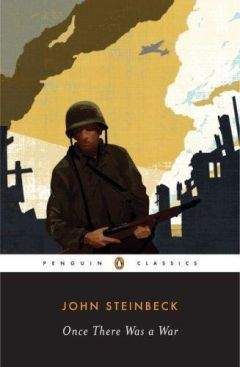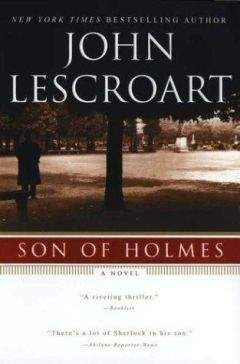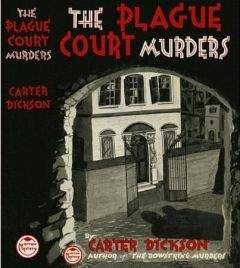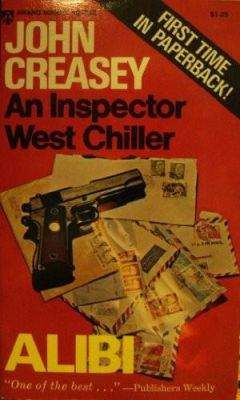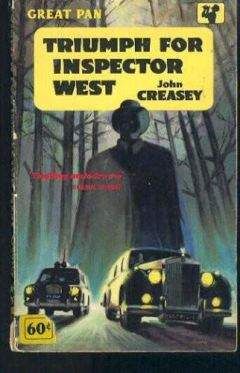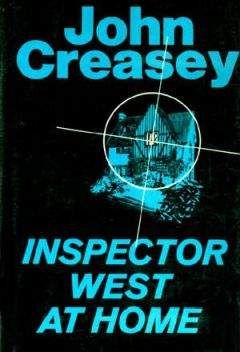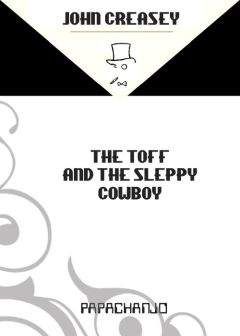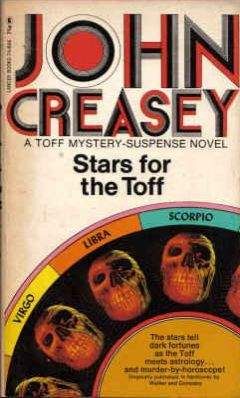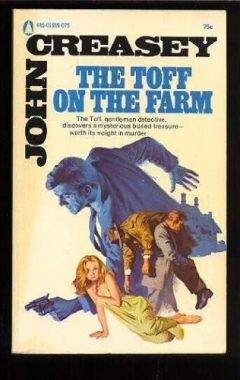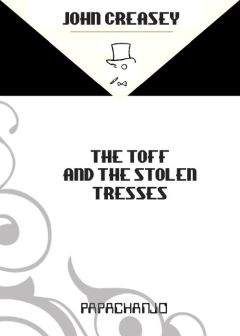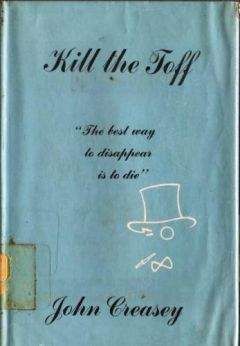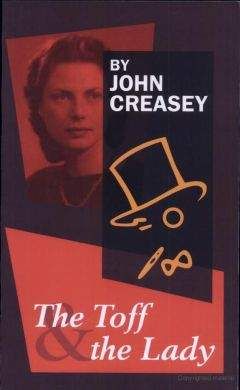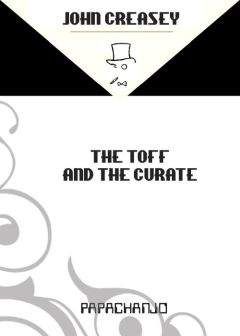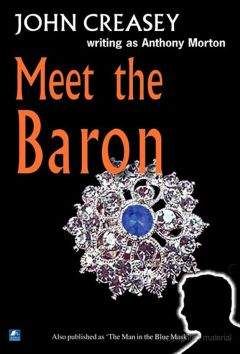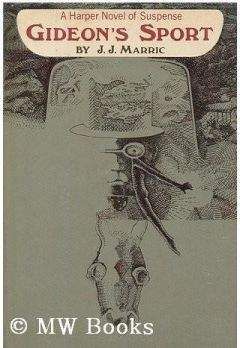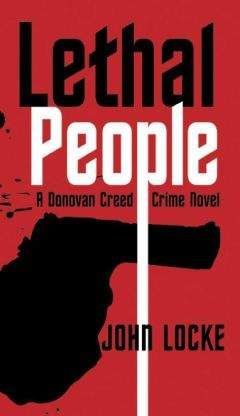John Creasey - Inspector West Alone
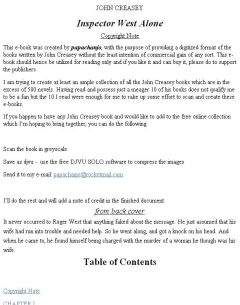
Скачивание начинается... Если скачивание не началось автоматически, пожалуйста нажмите на эту ссылку.
Жалоба
Напишите нам, и мы в срочном порядке примем меры.
Описание книги "Inspector West Alone"
Описание и краткое содержание "Inspector West Alone" читать бесплатно онлайн.
Chatworth grunted; that might mean anything.
“So I had another go at Rayner, tried to get him to admit that he knew Kennedy and Marion Day and Kyle. I didn’t get anything out of him. I don’t rate him as a bad man— that doesn’t mean he isn’t one, some cover it well, but I doubt if he’s a professional crook. I saw him yesterday. Late last night I had a mysterious telephone message, warning me that I was likely to meet with an accident— that rang a bell, all right!—and also giving me an interesting piece of information. The man said that if I wanted to find the identity of the Copse Cottage victim, I ought to try 23 Rue de Croix, Paris 8. That’s the address of the Lucille Dinard whose relatives I went to see. As a result——”
Chatworth said heavily: “You want protection as well as official support for your line of inquiry, men to work with you, and—you’d like to carry a gun, wouldn’t you?”
“That’s about it, sir. I know that we’ve often had a lot of vague stuff like this to work on before, and I can’t say that until last night I could see any reason for concentrated effort on the job, but now——”
“Who’d you want with you?”
“Detective Sergeant Peel.”
“All right. Make an official report of the threat against your life, an official application to carry firearms until further notice, and see if Peel can be freed for a week. Week long enough?”
“We ought to get something by the end of it, if there’s anything to get.”
“All right, try.”
* * * *
Peel was eight years younger than Sloan, and in appearance, might have been his brother. He was also a protégé of Roger West. He was free for the job.
* * * *
At the top of the steps, Sloan said to Peel :
“I’ll go by bus to the Ritz, then walk along to Hyde Park Corner and down Grosvenor Place. You take a car and be waiting at the Ritz. Follow me. If I’ve been followed, I’ll tip my hat on to the back of my head. Right?”
“Right.” Peel was eager.
Sloan went briskly down the steps of the Yard, along past Cannon Row police-station, thence to Parliament Street. A small car, parked near Parliament Street, moved after him. It was a Morris, shabby and muddy grey, and the registration number was XA 124. Sloan boarded a bus and found a seat in a place where he could watch the road behind him. The muddy grey Morris followed. Something about it touched a chord in his memory. He rubbed his chin, and tried to think why. “Muddy” and “grey” were the words which mattered. He glanced at the Daily Cry which he carried—there were front-page headines about the Delaney escape from Brixton. Ah! “The police are anxious to obtain information about a small muddy grey Austin or Morris four-seater car seen near the entrance to Brixton Jail about the time of the escape. A man was at the wheel, and a young woman passenger beside him. Information should——”
Sloan said aloud: “I believe in coincidence, but not in miracles!” He shrugged the suspicion aside.
The car slowed up in front of the bus when he got off. A passenger climbed out, a small, nondescript man, dressed in navy blue, wearing a trilby hat with a wide brim. Sloan walked briskly past the bus stop and along by Green Park. Chairs were dotted about the grass, a few people were strolling about beneath the watery sunlight. Traffic streamed towards Hyde Park Corner, but the muddy grey Morris stayed where it was for a few minutes, and the nondescript little man followed Sloan. Sloan tipped his hat on to the back of his head, but didn’t look round to see if Peel were following: Peel would be.
Sloan passed the gates of Green Park, hesitated on the kerb and looked at the square mass of St. George’s Hospital. He seemed to change his mind about crossing, and stepped out briskly down Grosvenor Place. His man and the little car also followed—the car never more than twenty yards behind him.
Quite suddenly, Sloan stepped into the road.
He had hardly touched the roadway before the engine •of the Morris roared and the car leapt forward.
CHAPTER XIX
JANET
TWENTY yards wasn’t far.
Unwarned, Sloan wouldn’t have stood a chance. The driver of another car, who was just pulling out to pass the Morris, jammed on his brakes and started to skid. The muddy grey Morris turned towards Sloan, but couldn’t touch him without causing a crash. The driver straightened the wheel. The car didn’t slow down. It flashed past Sloan, who was in front of the other car, which had stopped inches away from him. The driver, opening his door, was white with fright.
Peel’s dark car flashed by.
The man in the navy-blue suit stood on the kerb for a few minutes, then suddenly turned and hurried back towards Hyde Park Corner. All he’d done was walk along the pavement, there was nothing Sloan could do about him. The driver of the car which had nearly touched Sloan shouted:
“You ruddy fool! Serve you right if you’d caught a packet. How I stopped I don’t know. It’s idiots like you that cause the trouble. You’re lucky to be alive.” The words came out in a furious spate, and Sloan straightened his coat and tried to speak, but wasn’t given a chance. Passers-by joined in, all on the side of the driver.
“. . . ought to be given in charge, walking across the road like that. I’ve a good mind——”
“Yes, sorry,” said Sloan. “It was my fault.” He took out his card.
“I should damn well think it was your fault. Only a fool or a drunk would do that! Don’t stick your card in front of my nose.” The driver waved it away.
“I thought I saw a man I was after,” Sloan said. “I’m from the Yard.”
“I don’t care where you come from, if—where did you say?” The scared blue eyes dropped to the card, everyone else stopped talking. “Oh, the Yard.”
“Yes, I’m after a man and thought he was over here. I didn’t see you coming. Sorry.”
“Well——”
It was ten minutes before Sloan, transformed from villain to hero in the space of seconds, was able to get away. He took a taxi back to the Yard, and the first job he did was to write an official report of the incident, a description of the man who had left the car, and of the car itself. He made a special note: “Check with Brixton job”, and then went on with routine work, on edge for a call from Peel.
The telephone bell rang.
He snatched off the receiver. “Yes?”
“Peel here,” said Peel. “I’m glad you’re all right, I thought you’d gone bang into the other car.”
“Trail him home?”
“Yes,” said Peel. “A boarding-house in Chelsea. I’m at the Chelsea Station. Better just have him watched, hadn’t we?”
“Your job,” said Sloan, “and keep it quiet.”
“After this morning’s dose, you oughtn’t to travel much on your own.”
“Don’t worry about me,” said Sloan. “You just concentrate on that man. Where’s the car?”
“Outside the boarding-house.”
“Ask the Chelsea people to find out where it was last night—trace the garage, everything. Muddy and grey— does that mean anything?”
“Crikey! Brixton!”
Sloan laughed; he felt on top of the world.
He was still feeling on top of the world when the telephone bell rang again. He let it ring, but it wouldn’t stop. He finished a note and lifted the receiver. “Hallo . . . oh, hallo, Mark.”
His voice changed, and he came off the top with a bump. Mark Lessing made him think immediately of Janet West.
“Anything?” asked Mark briefly.
“I wish there were.” It was all right to use Lessing unofficially, impossible to tell him anything on this telephone, unwise to say anything that would raise Janet’s hopes. “How is she?”
“Not too good,” said Mark Lessing. “She’s convinced that the Yard has completely forgotten about it. Anything you can do to cheer her up a bit?”
“I’ll try to look in to-day,” Sloan promised.
He couldn’t settle to work for the next ten minutes. Visiting Janet West always hurt. He was back at the old question, too—whether to say or hint at anything that might raise her hopes.
He had lunch in the canteen. Banister sat on his own at a small table: Banister always sat on his own. He looked morose: he always looked morose. Sloan forgot him.
It was just after four o’clock when he turned into Bell Street, Chelsea. He hadn’t been followed; he didn’t think there was any danger for the rest of the day, they wouldn’t try again so quickly; one accident was an accident, two would make coincidence: coincidences made policemen thoughtful.
He saw two small boys, racing along the street towards him, one hefty and plump and red-faced, the other smaller, thinner, with wavy hair; even from this distance the smaller child’s huge blue eyes were noticeable. Both were laughing fit to burst. A young woman stood at a gate—West’s gate— calling them. They ignored her. They passed the car without looking towards Sloan, the larger boy nearly up to the first and stretching out to grab his grey jersey.
“Rich-ard!” He cried breathlessly. “That’s mine.”
Richard was clutching something that didn’t belong to him as he ran. The young woman called out again and began to hurry after them—and then Richard caught his toe in a ridge between paving stones, and crashed down. There was a moment of breathless silence, followed by a piercing howl. Sloan stopped as the woman hurried past him. She was small, big-breasted, with long, dark hair and a pale face; and her skirts were short. Richard howled wildly. Sloan looked out of the car and saw Scoopy, the elder boy, standing and watching in wide-eyed alarm; and he said:
“It wasn’t my fault, Richard took it.”
The woman said: “You’re a bad boy, Scoopy.”
Richard howled.
Sloan got out of the car and said: “Let me give him a ride, that’ll make him forget it.”
“No, he’s cut his knee,” said the woman, helping Richard up. His face had gone beetroot red, and he opened his mouth wide as he howled. The woman had dark eyes— and a way with children. She picked Richard up, and began to carry him towards the West’s house. “Scoopy, walk nicely behind me. What your mother will say, I don’t know.”
Scoopy defended himself. “Richard took it.”
Richard still had it; a small musical box, the shape of a drum, clutched in his right hand.
They trooped towards the house.
Normally, Janet West’s ears were so sharp that she would have heard that outcry and rushed to see what had caused it. She may have heard it, but hadn’t rushed. Sloan drove oh, and reached the house just in front of the little group. Scoopy took notice of him for the first time, and his big, broad face lit up.
“It’s Mr. Sloan!”
“Hallo, Scoop. What’s all the trouble about?”
“Richard wouldn’t let me have my musical box.” Scoopy knew an ally when he saw one. “It is mine. Daddy bought it for me before he went away.”
“He didn’t!” Richard had stopped crying, and was aggressively indignant. “He didn’t, did he, G’ace? Daddy bought it for us. It was my turn.”
The woman, Grace, put him down. His knee was bleeding freely, and blood gathered at the top of his sock. She bundled both of the boys inside; Sloan followed—and saw Janet coming down the stairs. She didn’t notice him. He stood and watched her, hating the lifelessness in her eyes and face and the dullness of her voice.
“Now what have you been up to?”
“Scoopy——” began Richard.
“Richard——” began Scoopy.
“I’ll look after them, Mrs. West, it only wants a wash and a bandage. Don’t worry.” Grace smiled; she had a charming smile which lit up the whole of her face with a lightness that was almost radiance, and made her look a different woman. None of the radiance touched Janet. She stood aside, and Sloan studied her more closely.
She had often been through difficult, dangerous times, known heart-ache and desperate anxiety when Roger was on a tough assignment; but Sloan had never seen her despairing. Her expression made her look years older—drawn lines at her eyes and mouth spoiled her looks. The eyes which had so readily glowed with cheerfulness were dull. She hadn’t let herself go completely; she was tidily dressed, in a dark-grey frock, and her hair was brushed; she wore it up, Edwardian fashion.
She saw Sloan.
“Bill!” Hope blazed in her eyes—hope without foundation, hope just at seeing him. But it faded swiftly; and she closed her eyes and stood quite still as he went in.
“Hallo, Janet. How are you?”
“I’m all right,” she said. “Come in.” She led the way into the front room—the sitting-room. It was full of Roger; why not? It belonged to Roger. His chair, his pipes, his-
Janet sat down and waved to a chair, then got up.
“Will you have a drink?”
“No, thanks, it’s a bit early.”
“There isn’t any news, is there?”
“No,” said Sloan. “Not news—not hard news, Jan. But I’ve something to tell you that I hope will help a bit.”
She became rigid.
“There’s a line on the Copse Cottage job which we hadn’t found before,” he said. “It may lead to nothing, but at least , it means that Chatworth has agreed that I should spend more time on it. I had a chat with him to-day. He’s prepared to back me up, and although he didn’t say so, he’s with me in believing that the whole business is a grotesque mistake.”
“He hasn’t told me that,” said Janet.
“He won’t, unless he gets hold of something that looks like real evidence. I don’t know that I should tell you this, but at least it’s something to hold on to. I can put some official time into it, now.”
She smiled faintly. “You’ve been wonderful, Bill. You and Mark, I don’t know what I’d have done without you. But—oh, I’ve tried to tell myself that it will work out all right, but if Roger were alive, he’d have got in touch with me, somehow.”
Sloan didn’t speak—but glanced at the door. He heard a slight sound there, and thought he saw the handle turn. Scoopy liked to listen to conversations, but if it had been Scoopy he wouldn’t have come to the door so silently. Imagination ?
Janet said: “Bill, it’s no use, we just have to face the facts. Either Roger is dead or he has had something to do with—crime. That’s the only choice we have. And you know he hasn’t had anything to do with crime, so he must be dead.”
“I can’t believe it.”
“Have you any reason at all for saying that?”
Sloan stood up and took out his cigarettes, moved casually across the room without making a sound and without looking at the door. He said:
“No real reason, Jan. But we know the identity of the girl who was killed at Copse Cottage now, that’s the line that’s opened. I’ve left my matches in my overcoat pocket —won’t be a moment.”
He opened the door.
Подписывайтесь на наши страницы в социальных сетях.
Будьте в курсе последних книжных новинок, комментируйте, обсуждайте. Мы ждём Вас!
Похожие книги на "Inspector West Alone"
Книги похожие на "Inspector West Alone" читать онлайн или скачать бесплатно полные версии.
Мы рекомендуем Вам зарегистрироваться либо войти на сайт под своим именем.
Отзывы о "John Creasey - Inspector West Alone"
Отзывы читателей о книге "Inspector West Alone", комментарии и мнения людей о произведении.





